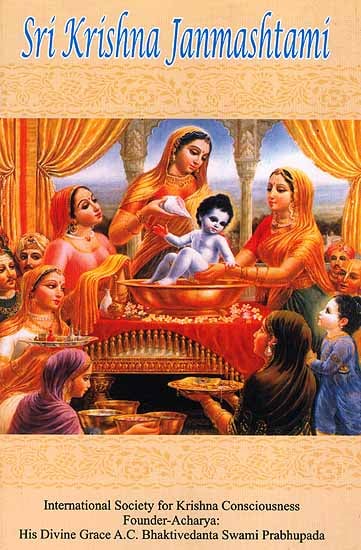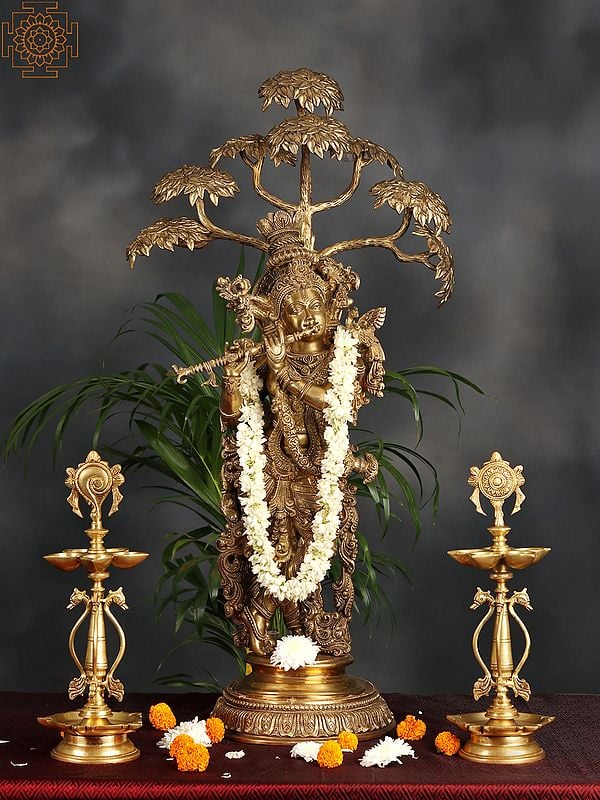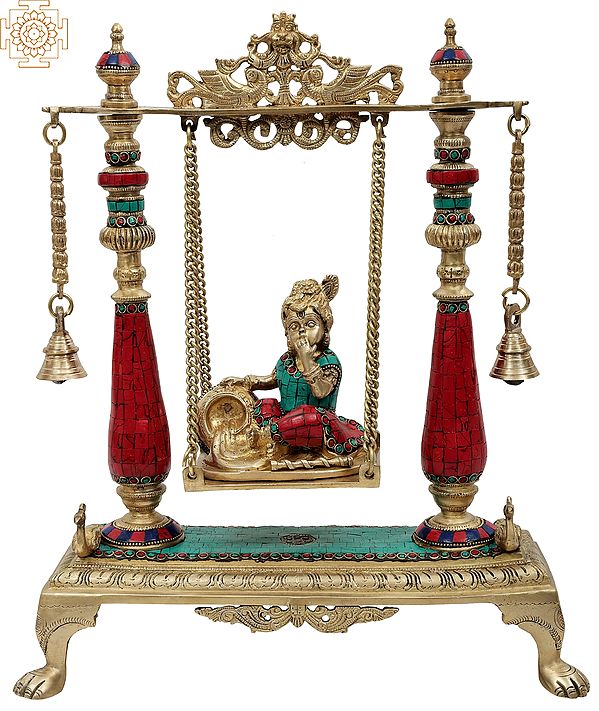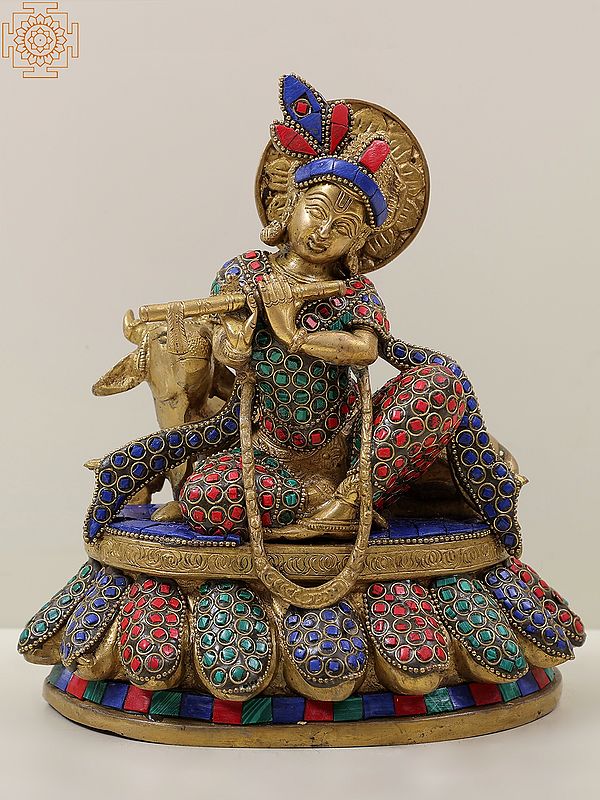Janmashtami: The Celebration of Lord Krishna's Birth
Janmashtami is one of the most widely celebrated Hindu holidays, holding special significance for followers of Gaudiya Vaishnavism. In this tradition, Lord Krishna is revered as both the source and ultimate form of the Divine, worshipped through the practice of bhakti yoga, the yoga of loving devotion. Other Hindu traditions regard Krishna as an incarnation of Lord Vishnu.
According to the Srimad Bhagavatam, a sacred text recounting the life and deeds of Krishna, the story of his birth begins with a plea from Bhumi, the Earth Goddess, to Brahma, the Architect of the Universe. Bhumi lamented the Earth's plight, overrun by malevolent kings who oppressed their subjects through greed and corruption. Touched by her distress, Brahma approached Vishnu, a manifestation of the Divine as the Preserver and Protector of the Universe in many Hindu beliefs, and regarded as an expansion of Krishna by Gaudiya Vaishnavas.
Responding to Brahma's plea, Vishnu, in the form of Krishna, declared his intention to incarnate on Earth to eradicate corrupt monarchies, protect the oppressed, and establish just leadership.
As fate would have it, Krishna was Devaki's eighth child. After his birth, the prison doors miraculously opened, and the guards fell into a deep slumber. Seizing this opportunity, Vasudeva escaped with the baby and left him in the care of Yasoda and Nanda, a couple in the village of Vrindavan (also located in Uttar Pradesh), who became Krishna's loving foster parents.
After spending his childhood in Vrindavan, Krishna returned to his birthplace, Mathura, and defeated Kamsa, ending his tyrannical rule and restoring righteousness (dharma). As Vishnu had promised, Krishna later became a king and devoted his life to removing oppressive powers and replacing them with benevolent leadership.
In Gaudiya Vaishnava tradition, Krishna always considered Vrindavan his cherished home. Here, he led a simple life as a cowherd boy, deeply loved by his family and friends. Consequently, Janmashtami is celebrated with particular fervor in Vrindavan, which boasts more than 4,000 temples.
The festivities in Vrindavan commence ten days before Krishna's actual birthday, with the sounds of bells and kirtan (devotional music) filling the air. Priests conduct public readings of the Bhagavad Gita and pilgrims from around the world flock to the town.
Janmashtami Day features dances and dramas depicting Krishna's life. The murti (idol) of Krishna is bathed in an auspicious ceremony called abhisheka, witnessed by the public and performed by temple priests.
On the day preceding Krishna's midnight birth, many devotees fast as a means to gain control over their senses, which can then be dedicated to worshipping Krishna and meditating on his divine pastimes. Although modern times consider midnight the start of a new day, ancient India regarded dawn as the beginning of a new day. Hence, Janmashtami is observed throughout the day leading up to Krishna's birth.
As Janmashtami occurs only once a year, many followers view every moment of the day as profoundly auspicious, dedicating themselves to remembering the glories and teachings of Lord Krishna.







Comments
Post a Comment